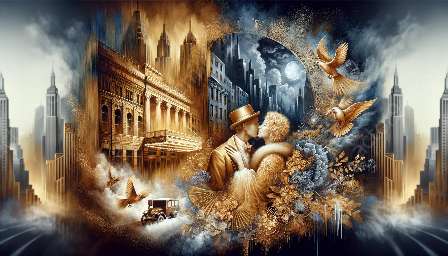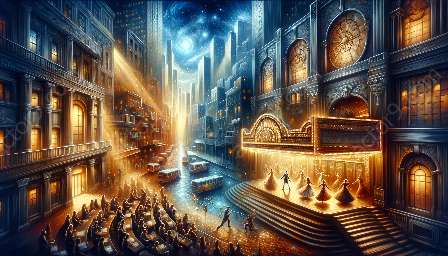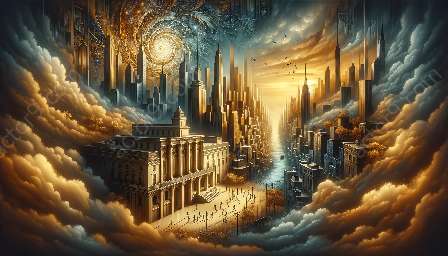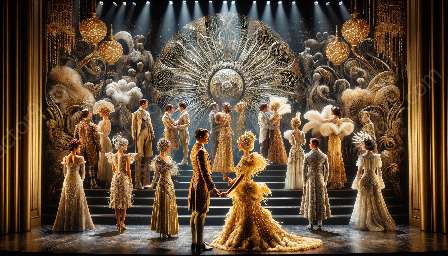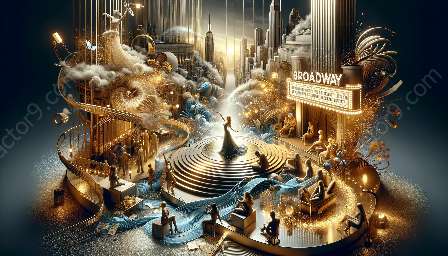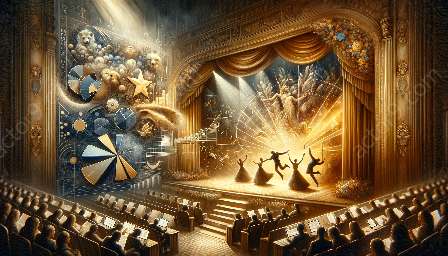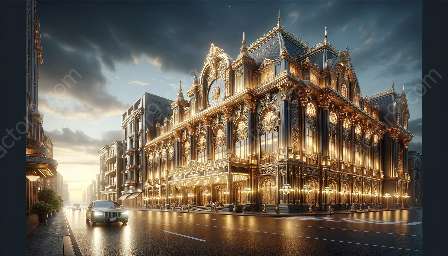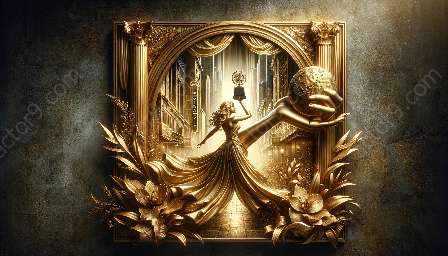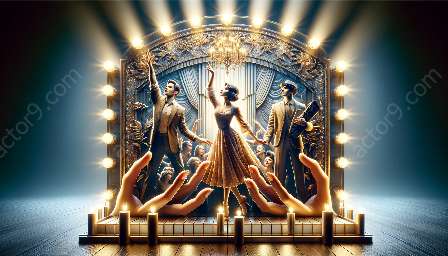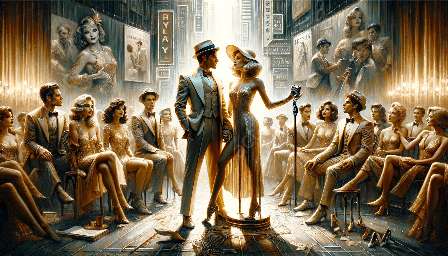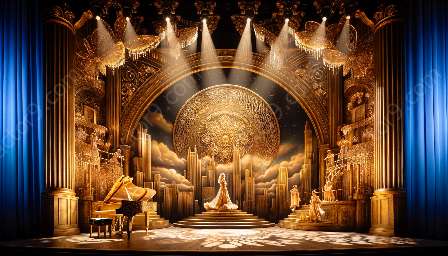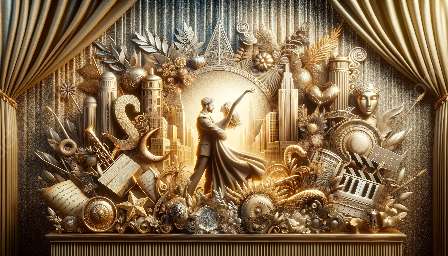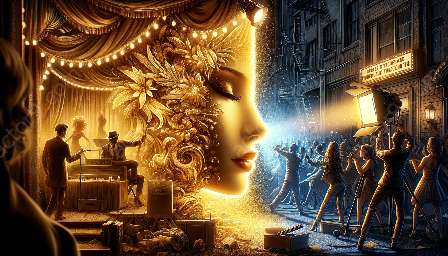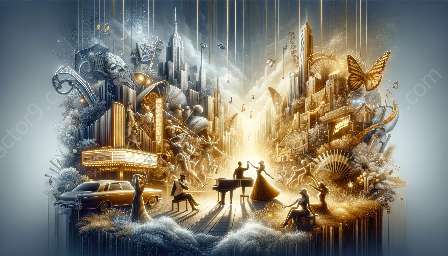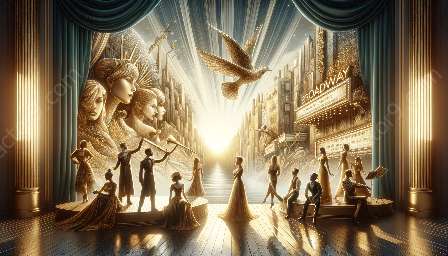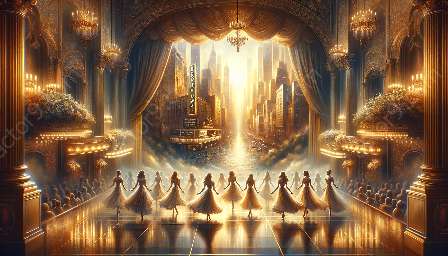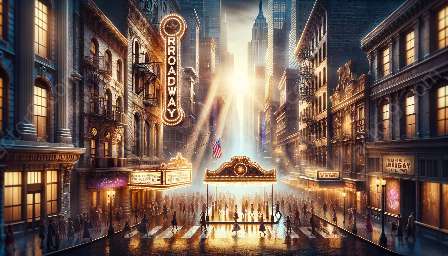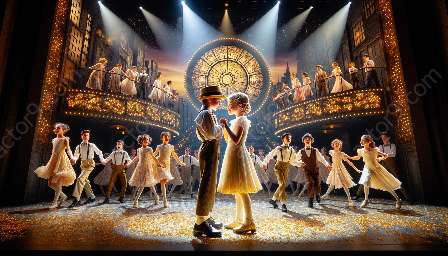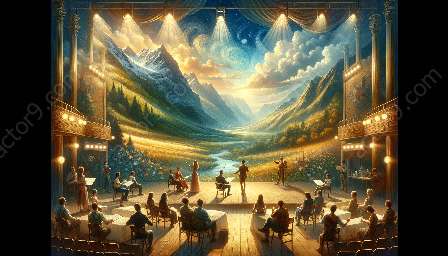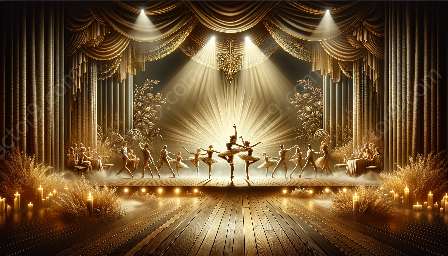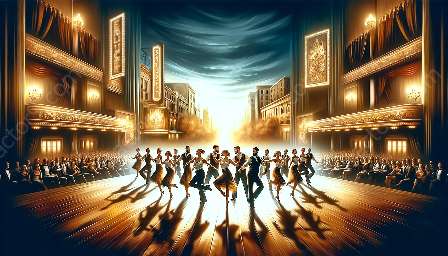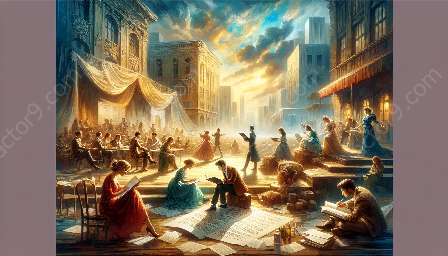The concept of the Broadway musical has undergone significant evolution over time, shaping the history and revivals of Broadway shows and musical theater. From its origins to the modern age, the Broadway musical has continuously evolved, adapting to cultural and societal changes while retaining its core elements.
Origins of the Broadway Musical
The roots of the Broadway musical can be traced back to the late 19th and early 20th centuries. It emerged as a combination of various theatrical and musical forms, including operetta, vaudeville, and minstrel shows. The musicals of this era often featured light-hearted, comedic plots and catchy tunes, reflecting the entertainment preferences of the time.
One of the pioneering works in the development of the Broadway musical was the operetta 'The Black Crook,' which premiered in 1866. This production is widely considered as the first proto-musical to be staged on Broadway, blending elements of dance, music, and drama.
The Golden Age of Musicals
The Broadway musical experienced a significant shift during the early to mid-20th century, often referred to as the Golden Age of Musicals. This period saw the emergence of iconic composers and lyricists such as Rodgers and Hammerstein, Irving Berlin, Jerome Kern, and Cole Porter, who revolutionized the genre with their timeless works.
During the Golden Age, musicals evolved to tackle more serious and socially relevant themes, integrating music, lyrics, and storytelling in a seamless manner. Productions like 'Oklahoma!' and 'South Pacific' set new standards for musical theater, introducing innovative narrative structures and emotionally resonant scores.
As the popularity of Broadway musicals soared, their influence extended beyond the theater, shaping popular culture and inspiring adaptations in film and television.
Modern Era and Diversification
In the latter half of the 20th century and into the 21st century, the Broadway musical continued to evolve, diversifying in style, content, and production techniques. Musicals such as 'Hair' and 'Rent' challenged traditional norms, addressing controversial topics and experimenting with non-traditional musical forms.
The emergence of rock and pop-infused musicals, including 'The Phantom of the Opera' and 'Les Misérables,' further expanded the artistic landscape of Broadway, reaching new audiences and pushing creative boundaries.
Broadway Show History and Revivals
The evolution of the Broadway musical has deeply influenced the history and revivals of Broadway shows. Many classic musicals from the Golden Age continue to be revived, reimagined, and introduced to new generations of theatergoers, preserving their cultural significance and artistic legacy.
Revivals play a crucial role in showcasing the timelessness of these beloved musicals while offering fresh interpretations that resonate with contemporary audiences. Additionally, the preservation of archival materials and restoration efforts ensure that the original vision of these productions is faithfully honored in revivals.
Impact on Broadway & Musical Theater
The evolution of the Broadway musical has had a profound impact on the broader landscape of musical theater. It has inspired aspiring playwrights, composers, and performers to experiment with diverse storytelling techniques, musical styles, and thematic explorations, contributing to the ongoing vitality of the art form.
Furthermore, the influence of the Broadway musical extends to educational programs, community theaters, and international productions, fostering a global appreciation for the richness and diversity of musical theater.


